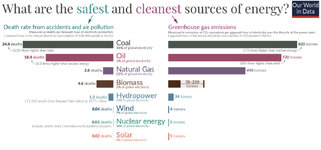This radioactive waste remains dangerous for milions of years. Hey, we don't need to do anything now. Let future descendents deal with it all! And people wonder why nuclear energy has a bad reputation.
It doesn't remain dangerous for that long.
Furthermore, most of that is actually unused fuel--because we won't reprocess it because people panic about "plutonium." Sorry, but it's almost impossible to make a bomb out of reactor waste. A plutonium bomb is hard enough as it is (the physics of the explosive lenses is complex and the tolerances are extreme) and it gets much, much harder when you use power reactor plutonium with it's heavy load of Pu-240.
Besides, a while back I ran into a paper describing in general how to build a hydrogen bomb
without a fission trigger (the design used explosives to compress a magnetic field to get the required compression.) Their designs topped out at 2kt--but that was a multi-stage device. That means they felt it was possible to detonate a stage without putting a fission trigger in it (the standard Teller-Ulam design has a plutonium rod in the secondary which gets compressed along with the lithium deutride and provides the ignition) and that strongly suggests that they simply stopped there from not wanting to be too detailed. At least Teller-Ulam stages can be stacked as many levels as you want. At least the design required deuterium/tritium gas rather than lithium deutride.


